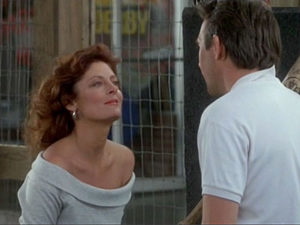I’m a huge fan of Bloomberg’s Matt Levine,1 who is basically smarter and funnier than anyone writing about finance.
Anyway, I was annoyed to read yesterday’s Op-Ed by Gregory Mankiw (whose textbook of course we all had to have in College) Mankiw’s a Harvard professor with all the respect that comes with that, and he’s attacking a tax position I hold dearly. My view is that the Estate Tax is the best of all taxes, and Mankiw’s view in the Op-Ed is that it’s unfair, because of the different level of taxation that will hit a theoretical household of frugals vs. spendthrifts.
Mankiw’s view is that two households that generate, say, $20 million in wealth will be hit by unequal taxes, depending on how they spend, or don’t spend, their money. To complete the thought, a spendy household will end up avoiding the estate tax – currently 40% of an estate’s value above $5.45 million. Meanwhile, a thrifty household will pay those hefty taxes, when the couple dies. Humph. That did sound unfair when I read it yesterday.
Thankfully, Levine rescues my views, with an important distinction. The taxpayer is actually their heir, not the wealth-generator. The wealth-generator is dead. And when you think about what is “fair” to heirs, the calculus changes. Take it away, Matt:
Here is a curious argument from N. Gregory Mankiw that the estate tax is bad “because it violates a principle that economists call horizontal equity. The basic idea is that similar people should face similar tax burdens.” So if two couples — the Frugals and the Profligates — each start businesses, work hard, and earn the same amount of money, they should each pay the same amount of taxes, even if the Frugals save all their money and the Profligates spend theirs. They do. But Mankiw thinks they don’t:
[Levine now quoting Mankiw:] Under an income tax, the couples would pay the same, because they earned the same income. Under a consumption tax, Mr. and Mrs. Profligate would pay more because of their lavish living (though the Frugals’ descendants would also pay when they spend their inheritance). But under our current system, which combines an income tax and an estate tax, the Frugal family has the higher tax burden. To me, this does not seem right.
Ah, see, the problem here is thinking that the senior Frugals pay the estate tax. They don’t. They are dead when the estate tax is assessed. The two great inevitabilities are death and taxes, but death is in an important sense logically prior. When you pay taxes, you still (usually) prefer not to be dead. Once you are dead, you have no preferences about taxes. We could fund the government with a lovely, efficient, non-distortionary system of taxing only the dead, except — and this is another key point — the dead don’t have any money. The incidence of the estate tax can’t be on dead people. Once the Frugals die, their heirs have the money, and the estate tax taxes them. If the Frugals’ children make $30,000 a year as art gallery assistants and also inherit $20 million, and Mr. and Mrs. Justnotrich’s children make $30,000 a year as Wal-Mart employees and inherit nothing, it seems odd to say that they should pay the same taxes as a matter of horizontal equity.
So anyway, I think Levine the finance blogger wins that round against Mankiw the professor. Also, it fits my worldview, so…
Please see related posts:
The Estate Tax is the best tax
Adult conversation about taxes
Post read (244) times.
- And you should subscribe to his daily email. No wait, don’t, because then you’ll realize how often I’m trying to ape his style. Forget I mentinoed it. ↩






